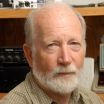(Press-News.org) Researchers at The Johns Hopkins University have discovered a way to make time stand still -- at least when it comes to the yearly calendar.
Using computer programs and mathematical formulas, Richard Conn Henry, an astrophysicist in the Krieger School of Arts and Sciences, and Steve H. Hanke, an applied economist in the Whiting School of Engineering, have created a new calendar in which each new 12-month period is identical to the one which came before, and remains that way from one year to the next in perpetuity.
Under the Hanke-Henry Permanent Calendar, for instance, if Christmas fell on a Sunday in 2012 (and it would), it would also fall on a Sunday in 2013, 2014 and beyond. In addition, under the new calendar, the rhyme "30 days hath September, April, June and November," would no longer apply, because September would have 31 days, as would March, June and December. All the rest would have 30. (Try creating a rhyme using that.)
"Our plan offers a stable calendar that is absolutely identical from year to year and which allows the permanent, rational planning of annual activities, from school to work holidays," says Henry, who is also director of the Maryland Space Grant Consortium. "Think about how much time and effort are expended each year in redesigning the calendar of every single organization in the world and it becomes obvious that our calendar would make life much simpler and would have noteworthy benefits."
Among the practical advantages would be the convenience afforded by birthdays and holidays (as well as work holidays) falling on the same day of the week every year. But the economic benefits are even more profound, according to Hanke, an expert in international economics, including monetary policy.
"Our calendar would simplify financial calculations and eliminate what we call the 'rip off' factor,'" explains Hanke. "Determining how much interest accrues on mortgages, bonds, forward rate agreements, swaps and others, day counts are required. Our current calendar is full of anomalies that have led to the establishment of a wide range of conventions that attempt to simplify interest calculations. Our proposed permanent calendar has a predictable 91-day quarterly pattern of two months of 30 days and a third month of 31 days, which does away with the need for artificial day count conventions."
According to Hanke and Henry, their calendar is an improvement on the dozens of rival reform calendars proffered by individuals and institutions over the last century.
"Attempts at reform have failed in the past because all of the major ones have involved breaking the seven-day cycle of the week, which is not acceptable to many people because it violates the Fourth Commandment about keeping the Sabbath Day," Henry explains. "Our version never breaks that cycle."
Henry posits that his team's version is far more convenient, sensible and easier to use than the current Gregorian calendar, which has been in place for four centuries – ever since 1582, when Pope Gregory altered a calendar that was instituted in 46 BC by Julius Caesar.
In an effort to bring Caesar's calendar in synch with the seasons, the pope's team removed 11 days from the calendar in October, so that Oct. 4 was followed immediately by Oct. 15. This adjustment was necessary in order to deal with the same knotty problem that makes designing an effective and practical new calendar such a challenge: the fact that each Earth year is 365.2422 days long.
Hanke and Henry deal with those extra "pieces" of days by dropping leap years entirely in favor of an extra week added at the end of December every five or six years. This brings the calendar in sync with the seasonal changes as the Earth circles the sun.
In addition to advocating the adoption of this new calendar, Hanke and Henry encourage the abolition of world time zones and the adoption of "Universal Time" (formerly known as Greenwich Mean Time) in order to synchronize dates and times worldwide, streamlining international business.
"One time throughout the world, one date throughout the world," they write in a January 2012 Global Asia article about their proposals. "Business meetings, sports schedules and school calendars would be identical every year. Today's cacophony of time zones, daylight savings times and calendar fluctuations, year after year, would be over. The economy -- that's all of us -- would receive a permanent 'harmonization' dividend."
###
View a website about the Hanke-Henry Permanent Calendar here:
http://henry.pha.jhu.edu/calendar.html
Read Hanke and Henry's January 2012 Global Asia article about calendar reform here:
http://www.cato.org/pub_display.php?pub_id=13940
For interviews, you may contact Steve H. Hanke at hanke@jhu.edu or 410-516-7183, and Richard Conn Henry at henry@jhu.edu or 410-516-7350
END
Nevada, the "Silver State," is well-known for mining precious metals.
But scientists Dennis Bazylinski and colleagues at the University of Nevada Las Vegas (UNLV) do a different type of mining.
They sluice through every water body they can find, looking for new forms of microbial magnetism.
In a basin named Badwater on the edge of Death Valley National Park, Bazylinski and researcher Christopher Lefèvre hit pay dirt.
Lefèvre is with the French National Center of Scientific Research and University of Aix-Marseille II.
In this week's issue of the journal Science, ...
WASHINGTON—December 27, 2011—Research!America's new national voter education initiative, Your Candidates-Your Health, features responses from President Obama and Republican Presidential candidate Newt Gingrich on important health research and prevention issues. Among the highlights: both Obama and Gingrich agree that research to improve health and prevent disease is part of the solution to rising health care costs, and boosting investment in medical research creates jobs that benefit a wide variety of industries. Their positions on embryonic stem cell research differ. ...
EUGENE, Ore. -- A small fish crawling on stumpy limbs from a shrinking desert pond is an icon of can-do spirit, emblematic of a leading theory for the evolutionary transition between fish and amphibians. This theorized image of such a drastic adaptation to changing environmental conditions, however, may, itself, be evolving into a new picture.
University of Oregon scientist Gregory J. Retallack, professor of geological sciences, says that his discoveries at numerous sites in Maryland, New York and Pennsylvania suggests that "such a plucky hypothetical ancestor of ours ...
Columbia, MO – When it comes to love songs, female tree frogs are pretty picky. According to a new study from the University of Missouri, certain female tree frogs may be remarkably attuned to the songs of mates who share the same number of chromosomes as they do. The discovery offers insight into how new frog species may have evolved.
Carl Gerhardt, Curators Professor of Biological Sciences in the MU College of Arts and Science and doctoral student Mitch Tucker studied two closely related species of grey tree frogs that live in Missouri, the eastern grey tree frog (Hyla ...
The law requires parents to support their children financially, whether the parents live together or not. Whether the parents divorce or were never married, one of the ways that the law can ensure that children are provided for is through child support orders. Georgia parents looking to obtain child support orders should be aware of the steps they need to take to get and enforce child support orders.
Beginning a Child Support Case
Either parent can open a child support case with the Department of Human Services (DHS) by filling out an application for assistance and ...
Two vital parts of mentally organizing the world are classification, or the understanding that similar things belong in the same category; and induction, an educated guess about a thing's properties if it's in a certain category. There are reasons to believe that language greatly assists adults in both kinds of tasks. But how do young children use language to make sense of the things around them? It's a longstanding debate among psychologists.
A new study in Psychological Science, a journal of the Association for Psychological Science, challenges the predominant answer. ...
Small monkey groups may win territorial disputes against larger groups because some members of the larger, invading groups avoid aggressive encounters. In a new report published in the Proceedings of the National Academy of Sciences, Margaret Crofoot, post-doctoral fellow at the Smithsonian Tropical Research Institute and the Max Planck Institute of Ornithology, and Ian Gilby, professor at Duke University, show that individual monkeys that don't participate in conflicts prevent large groups from achieving their competitive potential.
The authors used recorded vocalizations ...
RICHLAND, Wash. -- New research suggests that China's impressive feat of cutting Beijing's pollution up to 50 percent for the 2008 Summer Olympics had some help from Mother Nature. Rain just at the beginning and wind during the Olympics likely contributed about half of the effort needed to clean up the skies, scientists found. The results also suggest emission controls need to be more widely implemented than in 2008 if pollution levels are to be reduced permanently.
Reporting their findings December 12 in the journal Atmospheric Chemistry and Physics, co-author atmospheric ...
An important part of saving a species is often understanding its DNA. Through a collaborative effort including 14 scientists representing organizations across Europe and the United States, researchers have been able to analyze the genome of the great ape species of the world.
"A robust appreciation of the means and methods of the evolution of genomes which underlies the diversification of the great apes requires a more detailed knowledge of genome variation that is poorly revealed by current genome sequencing methods. " said Oliver Ryder Ph.D., Director of Genetics ...
LA JOLLA, CA – December 27, 2011 – Scientists at The Scripps Research Institute have discovered that DNA stays too tightly wound in certain brain cells of schizophrenic subjects.
The findings suggest that drugs already in development for other diseases might eventually offer hope as a treatment for schizophrenia and related conditions in the elderly.
The research, now available online in the new Nature journal, Translational Psychiatry, shows the deficit is especially pronounced in younger people, meaning treatment might be most effective early on at minimizing or ...



